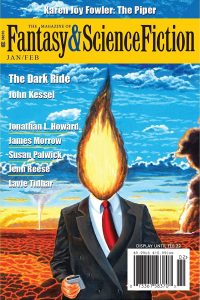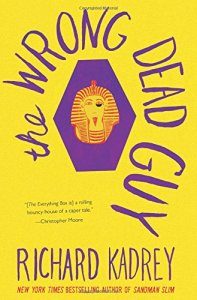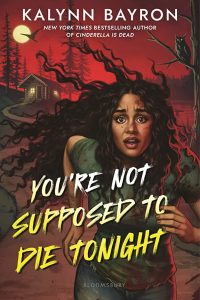Amy Goldschlager Reviews The Regrets Audiobook by Amy Bonnaffons
 The Regrets, Amy Bonnaffons; Jay Ben Markson, Christie Moreau & Gary Tiedemann, narrators (Hachette Audio 978-1-47899966-9, $25.98, digital download, 6.75 hr., unabridged) February 2020.
The Regrets, Amy Bonnaffons; Jay Ben Markson, Christie Moreau & Gary Tiedemann, narrators (Hachette Audio 978-1-47899966-9, $25.98, digital download, 6.75 hr., unabridged) February 2020.
When Thomas was a boy, a mistaken encounter with an angel of death turned him into a thrill-seeker, flirting with death out of a longing to see the angel again. When he finally gets his wish in a car accident, the afterlife bureaucracy determines that he is in the wrong spiritual state to move on to what comes next. So, neither alive nor fully dead, Thomas is returned to his Brooklyn neighborhood for a few weeks to get himself sorted out. Instructed to make no new human attachments, as that will only lead to regrets when he needs to move on, he nevertheless finds himself drawn to Rachel, a librarian whose relationships always fail because the men don’t live up to the fantasies in her head. In Thomas, she thinks she’s finally found what she’s looking for, and the two begin an ill-advised relationship that gives codependency a new and frightening meaning. Now that he is dead, Thomas can’t quite seem to let life go, even as his grip on it slips more and more; meanwhile, Rachel finds herself retreating from everything that gave her life meaning. When she ultimately decides to free herself from Thomas, she unexpectedly finds help from Mark, her former college boyfriend, who is himself recovering from a broken engagement and seeking direction.
The interior of one’s head is an incredibly lonely, self-indulgent space. This production heightens that intimacy and the unique emotional and mental landscape of each of the three first-person narrators by employing a different voice actor for each person. All three are excellent; the combo of the prose and the audio really gave me the sense that I was peering inside their minds. I have a slight bone to pick with Thomas’ narrator (whom I assume is Jay Ben Markson); he pronounces the name of Thomas’ equally dead best friend Therese as Tuh-REECE rather than Teh-REHZ. The character had an Algerian mother, so I think it likely her name would have had the French pronunciation. (It would have clarified things if the author had spelled her name Thérèse, but what can you do?)
If this novel and her short story collection, The Wrong Heaven (previously reviewed in this column), are any indication, Bonnaffons is not really interested in speculative fiction for its own sake. She uses the genre as a tool for character building, not world building. The novel depicts a very specific slice of Brooklyn, inhabited by navel-gazing twenty-somethings who have the luxury to wallow in their feelings of being adrift and confused. Bonnaffons crafts that narrow slice expertly and lyrically, and I believe she is too smart and aware not to know just what a constricted worldview that is. Nevertheless, I found myself longing for someone from another Brooklyn, Cher’s character from Moonstruck, to slap these young people across the face and shout, “Snap out of it!”
This review and more like it in the April 2020 issue of Locus.
 While you are here, please take a moment to support Locus with a one-time or recurring donation. We rely on reader donations to keep the magazine and site going, and would like to keep the site paywall free, but WE NEED YOUR FINANCIAL SUPPORT to continue quality coverage of the science fiction and fantasy field.
While you are here, please take a moment to support Locus with a one-time or recurring donation. We rely on reader donations to keep the magazine and site going, and would like to keep the site paywall free, but WE NEED YOUR FINANCIAL SUPPORT to continue quality coverage of the science fiction and fantasy field.







